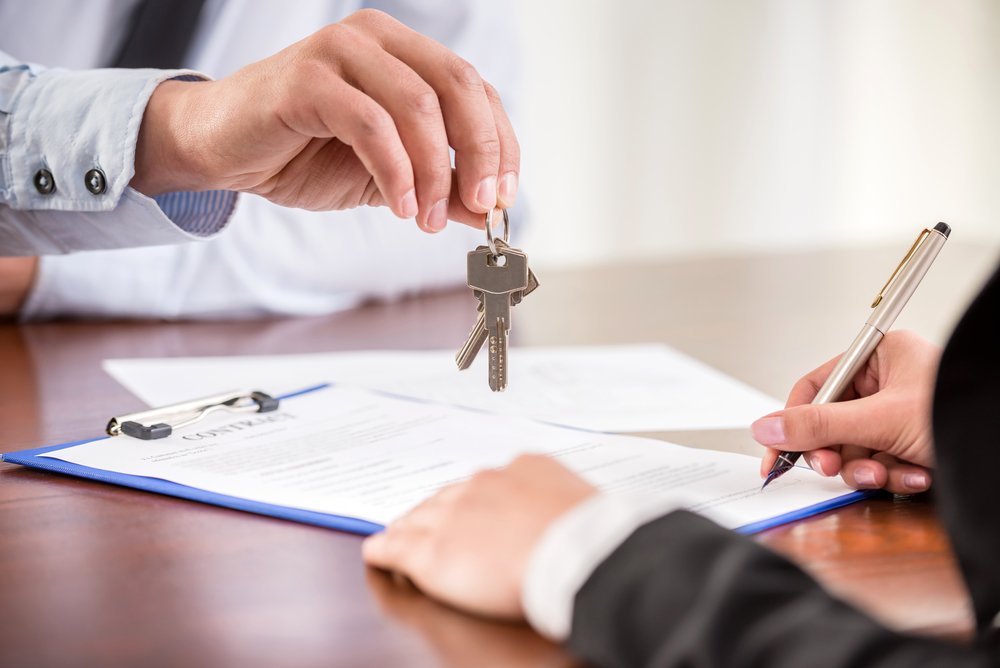Closing on a home remotely is no longer limited to out-of-state buyers or investors. Buying a house online is easier and more popular than ever before because of the special circumstances of COVID-19. This article is a guide for you if you want to register for the remote closing academy or you just want to know what remote closing on a house entails.
What Is A Remote House Closing?
A remote closing, sometimes known as a virtual closing, is similar to any other closing day. The exception is that many or all components of the procedure are completed virtually. Traditionally, the buyer, seller, real estate agent (or REALTOR), and attorneys congregate around the closing table to make appropriate payments as well as close and sign documents.
With a remote closing, all parties can complete all or a portion of the same activities using a computer from the comfort and convenience of their own home or workplace. Virtual closings are frequently associated with eMortgages. These are mortgage loans that have been digitally originated, enacted with electronic signatures, and virtually stored.
The responsibilities of a remote closer include looking for solutions to potential issues that are delaying or preventing the sale, elaborating on the benefits and good qualities of the products or services being sold, using techniques to influence the customer to finalize the sale, and negotiating a final deal.
Negotiation skills are required for success in this sector.
What Is the Process of a Remote Closing?

After you’ve done your house hunting, put an offer on a home, and had it accepted, it’s time to close and acquire the keys to your new home. Instead of meeting in person, the home purchasers and other parties involved can meet and complete the closing online with a virtual real estate closing.
You can anticipate meeting remotely utilizing a video conferencing program such as Skype, Zoom, Google Meet, or others for a fully online closing. Any payments required for closing will very certainly be made via electronic transfer, and mortgage documents will have to be signed online.
However, not all remote closings are the same. Due to varying e-closing rules across the country, not every closing can be completed totally online. Depending on your state, the process may differ slightly from what we explained above. Currently, three primary “models” of online closing can be expected. They are the hybrid technique, remote online notarization (RON), and in-person e-notarization (IPEN).
#1. Hybrid Closing Method
Using the hybrid technique, you can electronically sign everything that does not require a notary before your actual closing date. When that date arrives, you can meet in person with a notary or closing agent to sign the remaining documents. Then, you can receive the keys to your new home.
#2. Remote Online Notarization (RON)
Remote online notarization, or RON, allows you to complete the full closing procedure from the convenience of your own home. Instead of confirming your identity in person, you will most likely video conference during the closing process and produce identification documents. Such documents are your driver’s license or passport.
As of 2021, RON is legal in the majority of U.S. states. However, the following states do not have a permanent RON law, perhaps making entirely online closings only possible temporarily:
- Alabama
- Arkansas
- California
- Connecticut
- Delaware
- Illinois
- Kansas
- Mississippi
- State of New Hampshire
- Newark, New Jersey
- State of New Mexico
- North Carolina (NC)
- Maine
- Massachusetts
- Oregon
- Providence, Rhode Island
- West Virginia (WV)
If you live in one of these states and the executive order allowing RON in your area has expired, you can still complete at least a portion of your digital closing electronically by using the hybrid method described above.
#3. In-Person E-Notarization (IPEN)
The process of signing closing documents electronically but not remotely is known as in-person e-notarization or IPEN. An electronic notary is permitted to notarize without the use of paper, but all parties involved in the closing must be physically present.
Although this form of online closing has to be done in person rather than remotely, it cuts down paper waste by using electronic documents and helps make your closing process secure by confirming your identity in person. While IPEN is not a truly “remote” method of closing, it still has its benefits.
What Is A ‘Wet Signature’ And When Is It Required?
A “wet signature” refers to a real, physical signature on a document rather than an electronic one. Thanks to RON, technically all documents can be validly signed virtually if allowed in your state.
Some states that do not have permanent RON bills may require you to sign some of your mortgage documents in person. Such documents are promissory notes or other notarized closing paperwork. Some states, and possibly your mortgage lender, may require this for legal reasons, such as fraud prevention.
Why has it taken the real estate industry so long to embrace remote closing?
Electronic closings existed prior to COVID-19, but they were not as widely used. In a typical real estate transaction, closing costs are typically paid by wire transfer. Online closings may have been used on occasion by out-of-state home buyers who couldn’t be present in person. However, they were generally regarded as a luxury.
Despite being widely accepted as a safer and more convenient method, a number of states still frown on remote closings. Remote closings can help you avoid getting sick during the pandemic. But, there are other issues to consider, such as fraud. Identity theft, as well as other security and privacy concerns, has prevented many states from enacting RON legislation.
Some areas in the United States also have complicated closing laws that may require a real estate attorney to be physically present for these events, making it impossible to completely remote the closing process.
Will Remote Closing Be The New Normal?
Remote closings are a convenient new way to handle the process of receiving the keys to your home, and they appear to be the logical next step in the real estate world. You can buy a car online and have it delivered to your door, so why not make it possible to buy a house online as well?
Rocket Mortgage is committed to making the mortgage process easier in the future. Rocket Mortgage can presently do online closings in some form in all 50 states – thus even if your state prohibits the use of RON, you may still complete at least a portion of your closing digitally using the hybrid method or IPEN.
What Is Remote Closing Academy?
Cole Gordon’s Remote Closing Academy is a course that teaches you how to conduct your own research and establish a high-ticket recession-proof sales talent. When used correctly with the critical thinking skills taught in his program, this business model will provide you with a steady stream of inbound calls.
According to Cole, you will not achieve success if you engage in unprofitable activities such as dropshipping, Amazon FBA, or real estate investing. Those things did, of course, work for some people, but not for the vast majority of those who tried them.
There is a better and faster way to achieve, according to him. And he’s offering a program in which you’ll learn a recession-proof and profitable strategy.
The question is whether the course will be successful.
What is the cost of Remote Closing Academy?
The course’s cost is not specified. However, based on basic pricing quotes, the total cost of the training is estimated to be around $8,400. We recommend doing your own research on remote closing before taking this one.
Cole Gordon: Who Is He?
Cole Gordon is the owner of the course, so say, he designed the course. He learned about remote closing a few years ago. He used to work as a bartender, earning only $18,000 a year while working every night. His experience as a bartender was unsatisfying, so he looked for another means to generate money.
He was given the option of running sophisticated sales funnels, building a team of employees for which he cannot afford to pay, or running possibly risky ads. Neither of those appealed to Cole at all, so he looked in a new direction.
Cole desired the opportunity to earn a large sum of money (six figures per year), be his own boss, have complete control over his spare time and schedule, and devote time to his interests.
Fortunately, he was able to discover a suitable career path. He was able to find a job that required phone sales, which looked to have declined as internet retailers got more prominent. With time, he was earning more than $10,000 per month doing nothing but this.
Can You Make Money With Remote Closing Academy?
Yes, you can if you make a lot of sales!
However, many people struggle with the responsibilities that come with selling.
Don’t get the wrong notion…
It’s not impossible to make money with sales, but if you’re going to put in the effort to learn the ropes (which, trust us, isn’t simple), you may as well make some real money while you’re doing it.
The approach that has helped numerous online businesses grow to over $40,000 per month is so simple that producing money becomes second nature.
Is Remote Closing Academy a Ponzi Scheme?
Technically, no. You can make money with this program, and it’s not a bad way to get your feet wet in the realm of internet business/marketing.
Sales, on the other hand, is a job, not a company. You will never achieve time or financial freedom if you are constantly exchanging your time for money.
Remember, you’ll probably be on the phone for the majority of the day.
However, with a 50% no-show rate, you’ll also have a lot of downtime. And that’s time you can put toward creating a more consistent, passive income stream.
How Do I Start A Remote Closer?
A bachelor’s degree in sales, marketing, business, or a similar profession is preferred by employers in some industries, although there are no official education requirements to become a remote closer.
Do Closers Get Commission?
Yes, rather than a basic salary, mortgage closers are paid a commission on each transaction. The amount of commission they make on a mortgage is determined on the parameters of the transaction.
To summarize,
Remote closing is a faster and more convenient way to get the keys to your new home – but the rules aren’t the same across the country. Before deciding if this type of closing is right for you, be sure to examine remote notarization rules and RON executive orders in your state.
Regardless of how straightforward the remote house purchasing process is, make sure you know what to bring to the closing table before the big day.
Remote Closing FAQs
What does it take to be a remote closer
Although there are no formal academic prerequisites to become a remote closer, employers in numerous industries prefer candidates with a bachelor’s degree in sales, marketing, business, or a related field.
Do you have what it takes to be a remote closer?
If you are a good negotiator with good sales experience and you have faith in your abilities, then you have what it takes to be a remote closer.
How much does a remote closer make?
In the United States, the average annual salary for a remote sales closer is $77,983. That is equivalent to about $37.49 per hour.
Is remote closing real?
A remote real estate closing is real. In addition, in most of the United States, you can close a house remotely.
Related Articles
- HYPOTHECATION REAL ESTATE: How It Works
- PROPERTY DAMAGE LAWYER: When You Need a Property Damage Lawyer
- LANDLORD FRIENDLY STATES: Comprehensive List of the Best & Least Options In 2023
- How to Get Insurance on the Spot in Illinois, Chicago
- Easy Own Homes: Rent to Own Homes in Illinois, Missouri






